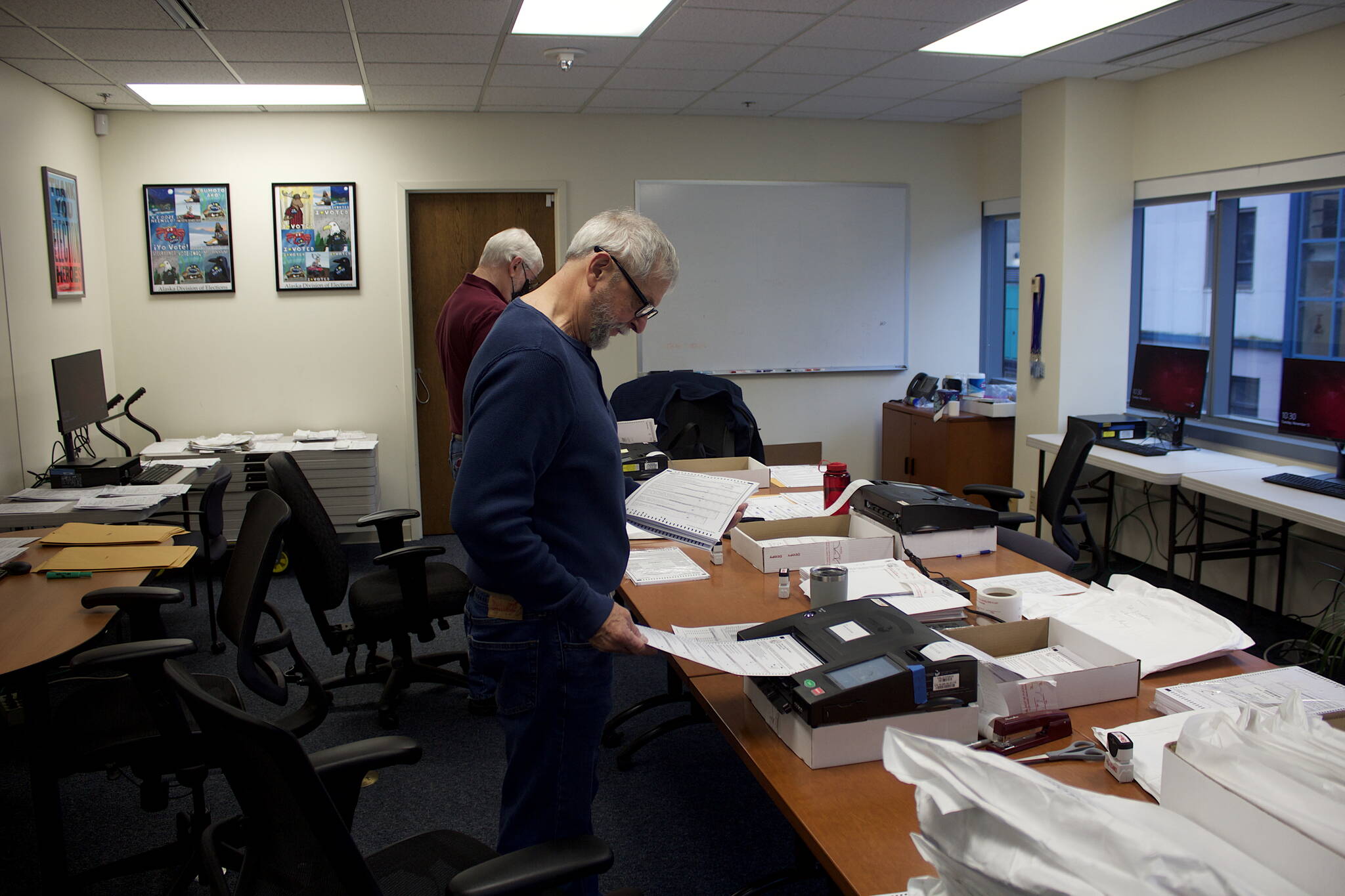Winners of Alaska’s first ranked choice election were certified Wednesday, so the next 10 days will determine if people questioning the legitimacy of the process follow through on challenging the results.
The results of the Nov. 8 election and subsequent Nov. 23 ranked choice tally remain the same, with U.S. Sen. Lisa Murkowski, U.S. Rep. Mary Peltola and Gov. Mike Dunleavy all being reelected by margins large enough to thwart recount requests or challenges based on close calls. But the outcome of two Alaska State House races are uncertain and likely dependent on challenges, which could be decisive in determining the majority leadership of the chamber where Republicans currently have the lead in 21 or 40 seats.
Ranked choice voting got intense national scrutiny after voters opted in 2020 to make Alaska the second state implement it statewide, but the certification process by the State Review Board since that tally a week ago has involved a standard range of reviews including early voting certificates, ballot envelopes and scanner tapes printed out at the end of Election Night, said Tiffany Montemayor, a Division of Elections spokesperson.
“There’s at least 20 different types of materials and they’re doing it for 40 districts plus District 99,” she said, the latter referring to the “federal district” representing military and other similar residents generally casting ballots from outside the state.
Two ways of challenging the results can now be made by defeated candidates or 10 qualified voters. The procedures for them as defined by state law are:
– Recount: A defeated candidate or 10 qualified voters may file recount application within five days after the completion of the state review for all candidates and ballot questions, except for governor and lieutenant governor which has a three-day window. The applicant must put down a deposit to pay for the recount unless the margin is less than 20 votes or 0.5%, although if the recount changes the winner or the results by 4% or more the deposit is refunded. There is no specific deadline to complete a recount.
– Contest: A defeated candidate or 10 qualified voters may contest the results in Superior Court within 10 days of certification on the claimed basis of 1) malconduct, fraud, or corruption on the part of an election official sufficient to change the result of the election; 2) when the person certified as elected or nominated is not qualified as required by law; or 3) any corrupt practice as defined by law sufficient to change the results of the election.
Two losing Republican candidates who have been prominent critics of ranked choice voting and questioned the integrity of the process are Kelly Tshibaka in the U.S. Senate race and former Gov. Sarah Palin in the U.S. House race. Tshibaka, a Republican who previously served as commissioner of the Department of Administration, made fundraising appeals on national TV for what she said could be potential challenges and Palin signed a ballot petition to repeal ranked choice voting before last week’s tallies were announced, but neither has stated since then they intend to contest their losses.
For the two races still pending, one involves a near-certain recount and the other a challenge that existed before certification.
The recount is for the Anchorage House District 15 seat Republican Rep. Tom McKay won by four votes over Democrat Denny Wells. The margin of 0.057% of the 6,940 votes cast easily meets the 0.5% requirement for the state to pay for the recount rather than the requesting party.
The challenge involves the Wasilla District 27 seat won by Republican Rep. David Eastman with a seemingly safe 51.3% of the vote. But an Anchorage judge ordered certification of the race to be put on hold pending the outcome of a trial regarding his eligibility to serve due to his membership in Oath Keepers, which the Northern Justice Project as the plaintiffs argue violates the Alaska Constitution’s “disloyalty clause.”
The trial is scheduled to start Dec. 12. Eastman for now is focusing efforts on fundraising he says are needed to cover legal costs, sending a “Giving Tuesday” email calling the lawsuit “a threat to every future candidate for public office.”
“The fraudulent lawsuit targeting my election seeks to supplant the will of Alaskan voters in the election process and replace it with the dictates of an Anchorage judge,” the emailstates.
• Contact Mark Sabbatini at mark.sabbatini@juneauempire.com

